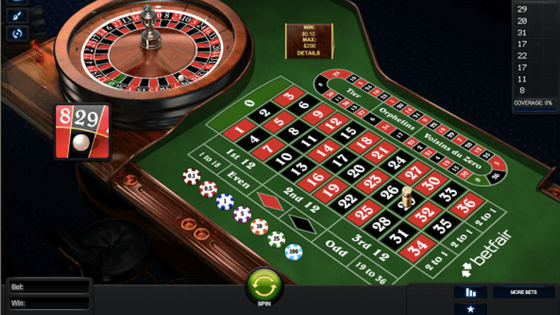To answer the question, “What is Advantage Play?” it is useful to start with the Wikipedia definition:
“Advantage gambling, or advantage play, refers to legal methods used to gain an advantage while gambling. The term usually refers to house-banked games, but can also refer to games played against other players, such as poker. Someone who practices advantage gambling is often referred to as an advantage player, or AP. Unlike cheating, which is by definition illegal, advantage play exploits innate characteristics of a particular game to give the player an advantage relative to the house or other players.”
Advantage Play Techniques
Now many of you reading that description may be thinking of the famous advantage play techniques you have seen in the movies such Blackjack’s card counting, edge sorting and shuffle tracking. This is not advantage play in the essence that we are going to use it. With our version of advantage play we are going to use free bonuses given to us by casinos to overcome something known as the “House Edge” to stack the odds in our favour.

How Casinos Make Their Money
Doesn’t the house always win? There is a reason it’s a famous saying…because it’s true! Casino games are deliberately designed so that they have an edge over the players meaning the house always win long-term.
For example, let’s take Roulette as it’s a game most of you will have heard of, you have a set of numbers (0-36) and almost all of them are coloured red or black.
Now if the game was fair, when you placed a bet on red or black you would have a 50/50 chance of winning (much like a coin flip). However, what people sometimes forget in their red/black bets is that pesky little green zero! This gives us three possible outcomes instead of two. Let’s say I place a £1 bet on red. There is an 18 out of 37 chance of a red colour coming up. That means that you have a 48.6% chance of winning (red number), and a 51.4% chance of losing (a black number or zero popping up).
As you can see, if the game was played over an infinite number of rounds you would win 48.6% of the time and lose 51.4% of the time, leaving you out of pocket and the casino in profit. This is what’s colloquially known as a “House Edge”.
In this particular case, we can see the house edge as:
(0.486 x £1 Win) + (0.514 x -£1 Loss) = -£0.028 x 100 = -2.8% Meaning the game has a 2.8% “House Edge”.
To give this some perspective if our hypothetical game was played a 1000 times with £1 stakes we would expect to lose £28. I say expect because of course you can be extremely lucky and have a game where you win more than the maths says you should (you can also lose a lot more too!). This is a phenomenon know as “variance” but I won’t go into that in any more detail as it starts to get complicated.
So let’s take a look at the typical games and their edges:
Blackjack – 0.5%
Roulette – 2.5 – 3%
Slots – 3 – 7%
These are the three main types of games we will be going through offers on so there is no need at this point to compile a list of other casino games. The ones listed above have ranges because there are often different variations in rules, and slots have a massive list of variables (e.g. Pay tables/Jackpots/Spin sizes etc.). As you can may have noticed; if you can ever complete an offer using Blackjack then do it!

How To Beat Casinos
Well just like bookmakers, casinos want to attract new players by offering juicy bonuses because they know in the long term they will recoup that money and more! These bonuses can be used to stack the odds in our favour in a way that we expect to make money.
For instance, let’s take this £25 bonus from William Hill for signing up to their casino. Firstly to get the bonus we must deposit £25, once the bonus has been added we have to complete something called “wagering”. Unfortunately, this a device put in place to stop players simply depositing the money and then withdrawing their original deposit as well as the £25 bonus without doing anything!
For this particular offer the wagering requirements stipulate we must bet our bonus balance at least 8 times before being able to withdraw. So for £25 (25 x 8 = 200) we must place £200 worth of bets. So using our knowledge of house edges we can work out that if we play 200 £1 hands of Blackjack (0.5% edge) we would expect to lose £1 overall (50p per £100 staked).
As you can see, if the game plays out as it should then we will have our £25 original deposit as well as £24 left of the £25 bonus we have played through 8 times, leaving us with a nice £24 profit! Of course the issue here is that the variance of probability might mean you walk away with a lot less or walk away with much more.
This is the key difference between matched betting and advantage play, matched betting guarantees profits, whereas advantage play involves risk and for some offers you could potentially lose your entire stake (although highly unlikely).
How Do I Start Advantage Playing?
Now I’ve covered the basics of advantage play you could head over to the Advantage Play section of this website where you will hopefully find answers to your (likely many) questions. By reading my blog posts you should start to get an understanding of key topics such as: how to spot an offer with a positive EV (expected value), how much money you can expect to make versus matched betting, which software you will need to subscribe to, which types of offers are the best, which offer are the ones to avoid, and advanced techniques such as exploiting maximum winnings loopholes and more. See you in there!
